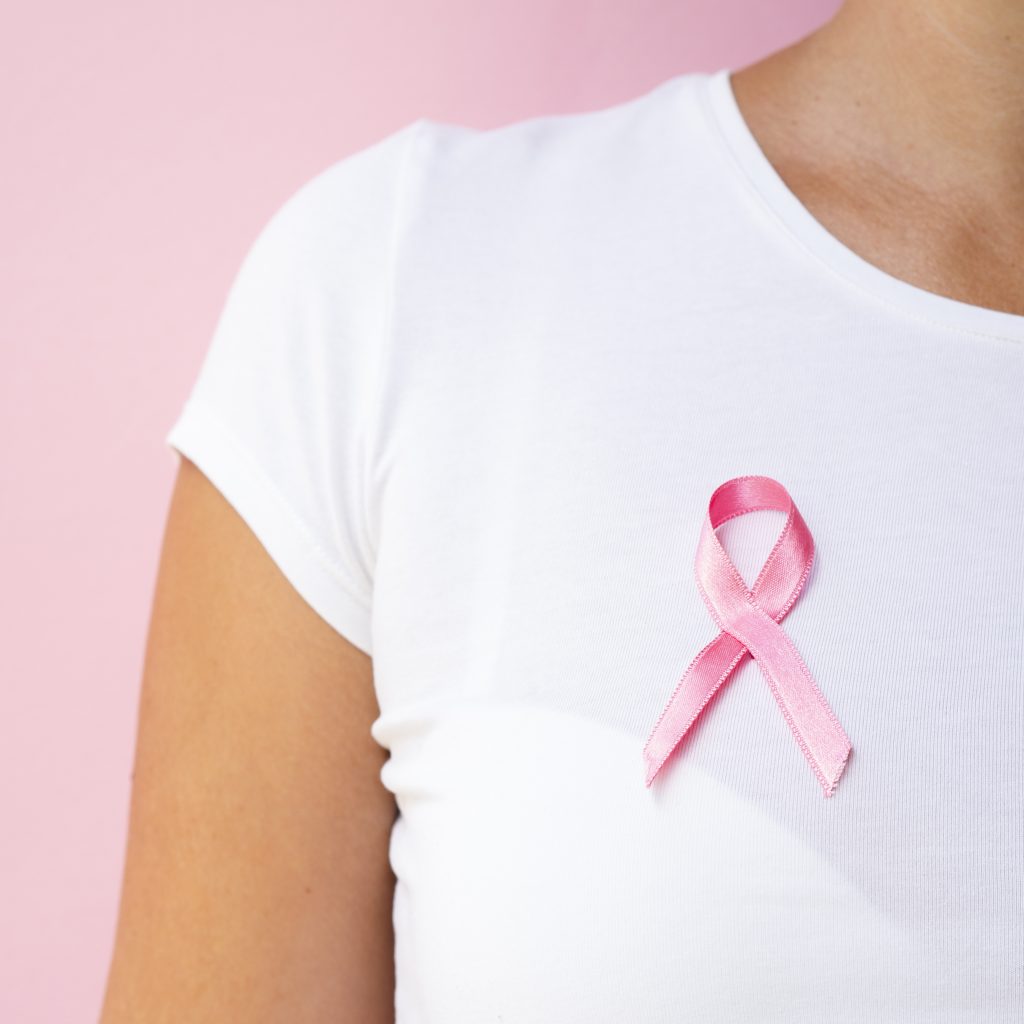Subtotal $0.00

Breast cancer is a common disease among women, involving the abnormal growth of cells in the breast tissue that can spread to other parts of the body. Understanding what causes this disease is essential for prevention and early detection. This article will explore the different factors that contribute to breast cancer in women.
What Causes Breast Cancer?
The exact causes of breast cancer are not completely known, but certain factors can raise the risk. Here are some common ones:
1. Radiation Exposure
Exposure to radiation, especially in the chest area, can increase the risk of developing breast cancer. This is particularly true for those who have had radiation treatments for other cancers, like Hodgkin’s disease.
2. Obesity
Being overweight, especially after menopause, can lead to hormonal imbalances that increase the risk of developing breast cancer. Studies show that post-menopausal women who are overweight or obese have a higher risk due to higher levels of certain hormones linked to body fat.
3. Late Menopause
Women who go through menopause after age 55 are more likely to develop breast cancer. This could be because they have had a longer lifetime exposure to hormones like estrogen and progesterone.
4. Early Menstruation
Starting periods before age 12 slightly increases the risk of breast cancer, likely due to a longer exposure to hormones over a lifetime.
5. Alcohol Consumption
Regular drinking of alcohol can increase breast cancer risk by changing hormone levels in the body. Even moderate drinking can raise risk levels, with higher consumption leading to greater risks.
While these factors do not guarantee that someone will get breast cancer, understanding them can help with early detection and prevention strategies. It’s important to discuss any issue with your doctor.
Genetic Factors
Genetics play a crucial role in breast cancer risk. Understanding how genetics influence this risk is essential for taking proactive measures.
Our body’s blueprint lies in our genes. Sometimes, mutations in these genes can increase the risk of diseases like breast cancer. Two significant genes are BRCA1 and BRCA2. These genes usually protect against cancer, but mutations can increase the risk.
- BRCA1 Gene: A mutation in this gene significantly increases the chance of developing breast cancer.
- BRCA2 Gene: Changes in this gene also elevate the risk of breast cancer.
Family history also influences breast cancer risk. If close relatives have had this disease, your own risk may be higher due to shared genetics. It’s important to know your family’s health history and discuss it with your doctor.
Hormonal Factors
Hormones play a crucial role in our body’s normal functioning but can also contribute to the development of breast cancer. Higher exposure to estrogen and progesterone over time has been linked to an increased risk.
The Estrogen—Breast Cancer Connection
Estrogen, a hormone predominantly found in females, is essential for sexual and reproductive development. However, it could also contribute to the onset of breast cancer. Women with longer menstrual cycles or those who start their periods at a young age have more estrogen exposure, which may increase their risk.
Hormone Replacement Therapy (HRT)
Many women use HRT to manage post-menopausal symptoms, but it could potentially increase the risk of developing breast cancer. The risk depends on the type and duration of therapy.
Lifestyle and Environmental Factors
Lifestyle and environmental factors also play a significant role in breast cancer risk.
Dietary Factors
The food we eat affects our overall health. Certain dietary factors can increase the risk of breast cancer. Eating processed foods high in trans fats, salt, and sugars, as well as processed meats and alcohol, can raise the chances of developing this disease. Including plenty of fruits, vegetables, lean proteins, and whole grains in your diet may help protect against it.
Physical Activity
Regular exercise helps regulate hormones associated with breast cancer. An active lifestyle can reduce the risk, while a sedentary lifestyle can increase susceptibility.
Environmental Pollutants
Exposure to certain harmful chemicals found in the environment could increase the risk of breast cancer. These include industrial chemicals, pesticides, plastic additives like bisphenol A (BPA), and certain heavy metals. Living near industrial areas or using plastic containers for hot food or drink, which may release harmful chemicals, are potential risk factors.
Recognizing and changing these lifestyle and environmental factors can help prevent breast cancer. It’s always a good time to make healthy changes.
Prevention Tips
Here are some practical tips to help prevent breast cancer and boost your overall health:
- Regular Check-ups: Visit your doctor regularly, preferably once a year, to catch breast cancer early when treatment is most effective.
- Self-Examinations: Perform monthly self-breast examinations. Look for changes in skin inflammation, breast texture, or unusual discharge. If you notice any of these signs, contact your doctor immediately.
- Screenings: Regular breast cancer screenings such as mammograms and ultrasound scans are beneficial. Women above 40 years should consider yearly mammograms as part of their health routine.
- Healthy Lifestyle: Eat nutritious food, exercise regularly, maintain a healthy weight, and limit alcohol intake to lower the risk of breast cancer.
- Breastfeeding: Breastfeeding can significantly reduce the chances of developing breast cancer.
These preventive measures do not guarantee that you will not get breast cancer, but they significantly lower the risk and help detect it early if it does occur.
Conclusion
Breast cancer is a major health concern, but understanding its causes can guide prevention strategies. Risk factors include uncontrollable elements like age and genetics, as well as lifestyle choices such as diet, alcohol consumption and physical activity. By focusing on what we can control—like eating a balanced diet, exercising regularly, limiting alcohol intake, and having regular screenings—we can significantly reduce the chances of developing this disease. Awareness and early detection are crucial in successfully fighting breast cancer.
